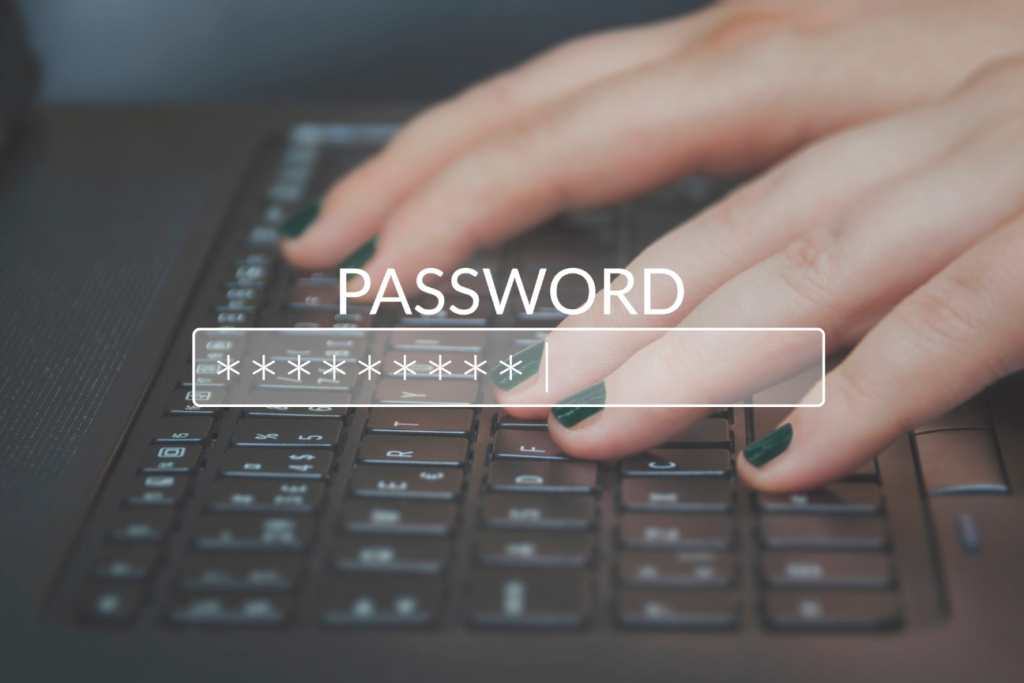
Nearly half of all small businesses in the United States have experienced a cyber attack, and the number of attacks is on the rise. Cyber security is therefore an important consideration for any small business. Cyber security refers to the measures taken to protect electronic information and systems from unauthorized access or theft.
This can include data stored on computers, servers, and mobile devices, as well as the systems themselves. There are many reasons why cyber security is important to small businesses. Firstly, data breaches can be extremely costly. A data breach can result in the loss of customer data, which can lead to a loss of business and damage to reputation. Secondly, cyber attacks can disable systems and prevent businesses from operating normally. This can lead to lost productivity and revenue.
Finally, small businesses are often targets of fraud, as they may not have the same level of security as larger businesses. There are several steps that small businesses can take to improve their cyber security. These include ensuring that all software is up to date, using strong passwords, and encrypting sensitive data. By taking these steps, small businesses can reduce the risk of falling victim to a cyber attack.
What is Cyber security?
When it comes to running a business, there are a lot of things that you need to be aware of in order to keep your operation up and running smoothly. One of the most important aspects of any business is cyber security. In today’s age, almost everything is done online, which means that there are a lot of opportunities for cyber criminals to take advantage of businesses that are not properly protected. In this article, we will cover the topics of what is cyber security, why it is so important for small businesses, and some of the ways that data breaches and fraud can occur.
What is Cyber security? Cyber security is the protection electronic information from unauthorized access or theft. This can include things like computer networks, software, data, and websites. Cyber security is important for businesses of all sizes, but it is especially critical for small businesses. This is because small businesses often don’t have the resources or manpower to effectively defend themselves against attacks. Why is Cyber security important to small businesses?
There are a few reasons why cyber security is so important for small businesses. First and foremost, data breaches can be extremely costly. If your business’s data is breached, you could be facing fines, legal fees, and damage to your reputation. In addition, small businesses are often targets for cyber criminals because they often don’t have the same level of protection as larger businesses. Finally, fraud can also be a major problem for small businesses. If you are the victim of fraud, you could end up losing a lot of money.
A data breach occurs when sensitive or confidential information is accessed without authorization. This can happen if your computer network is hacked, or if an employee accidentally exposes data. Data breaches can be very costly for businesses, as they can result in fines, legal fees, and damage to your reputation. In addition, if customer data is breached, you could also face a loss of business. Fraud occurs when someone uses deception to illegally obtain money or property from another person or business.
There are many different types of fraud, but some common examples include identity theft, phishing scams, and credit card fraud. Fraud can be very costly for businesses, as it can result in a loss of money and damage to your reputation.
Why is Cyber security important to small businesses?
There are many reasons why cyber security is important to small businesses. Small businesses are often the target of cyber attacks because they are seen as easy prey. They usually don’t have the same level of cyber security as larger businesses, making them more vulnerable. Cyber attacks can result in the loss of business data, customers’ personal information, and money.
They can also damage a small business’s reputation and cost them time and money to recover from the attack. In some cases, cyber attacks can even put a small business out of business. That’s why it’s so important for small businesses to invest in cyber security and make sure they are doing everything they can to protect their businesses and their customers.
1. Data breaches
Small businesses are increasingly the target of cyberattacks. In fact, cybercriminals cause 43 percent of all cyberattacks target small businesses. Cybersecurity is therefore becoming an increasingly important concern for small business owners. Data security breaches can be hugely damaging to small businesses. The loss of sensitive data can lead to usually a simple vulnerability that leads to financial losses, reputational damage and a loss of customer trust. In some cases, data breaches can even lead to the closure of a small business.
There are a number of steps that small business owners can take to protect their businesses from data breaches. These include investing in robust cybersecurity measures, educating employees about cybersecurity risks and being aware of the latest cybersecurity threats.
2. Fraud
As a small business owner, you might not think that cyber security is something that you need to worry about. After all, you’re not a big corporation with millions of dollars at stake. However, the truth is that even small businesses can be targets for cyber criminals. And if you’re not taking steps to protect your business, you could be putting yourself at risk. There are a few reasons why cyber security is especially important for small businesses. First of all, small businesses tend to be less prepared for attacks than larger companies. They often don’t have the same resources or the same level of expertise when it comes to security.
This means that they can be an easy target for hackers. Another reason why cyber security is important for small businesses is because they often have less robust defenses. Small businesses might not have the budget to invest in state-of-the-art security systems. Or they might not have the manpower to constantly monitor their systems for threats. This leaves them vulnerable to attack. Finally, small businesses often hold sensitive data like intellectual property, patient data, employee data, that hackers could find valuable. This might include customer information, financial data, or proprietary business information. If this data falls into the wrong hands, it could be used to harm your business or your customers.
So, as you can see, there are a number of reasons why cybersecurity is important for small businesses. If you’re not taking steps to protect your business, you could be putting yourself at risk. Fortunately, there are a few things you can do to help keep your business safe from hackers. One of the best things you can do is to educate yourself and your employees about cyber security. Make sure everyone understands the importance of keeping your systems secure.
And make sure they know what to do if they suspect a problem. You should also invest in some basic security measures. This might include a firewall, anti-virus software, risk assessments, penetration testing, cloud security and external SOC solution just to name a few. And consider using a password manager to help keep your passwords safe and secure.
Finally, don’t forget to back up your data regularly. This way, if you do suffer an attack, you’ll be able to recover your data quickly and get back up and running again.
3. Reputational damage
The vast majority of small businesses are highly reliant on their reputation in order to succeed. A single instance of cybercrime can irreparably damage that reputation, and it can take a long time – if ever – to recover. The reason for this is that people are generally much more wary of doing business with a company that has been the victim of a data breach or other form of cyberattack.
This is particularly true if sensitive customer data or financial information is involved. Even if a small business manages to quickly contain the damage and mitigate any potential consequences, the customers who were impacted are likely to remember what happened and may take their business elsewhere. In addition, news of a cyberattack – even if it didn’t directly affect the small business in question – can still damage its reputation.
This is because people often associate small businesses with being less capable of protecting themselves from cyber threats. As such, even hearing about another small business being attacked can make potential customers doubt the safety of doing business with them.
All of this means that reputation damage is one of the most serious consequences of a cyberattack for a small business. It can not only lead to direct financial losses, but also seriously undermine the viability of the business in the long term.
4. Small businesses are a target
Small businesses are a target for cyber attacks because they often lack the resources and expertise to effectively defend themselves. This leaves them vulnerable to exploitation by cyber criminals, who can use their access to steal sensitive data or inflict damage on the company’s operations.
A successful cyber attack on a small business can have devastating consequences, including financial loss, reputational damage, and the disruption of business operations. In some cases, it can even lead to the permanent closure of the company. That’s why it’s so important for small businesses to invest in robust cyber security defenses.
By taking steps to protect their data and systems, they can make it much harder for criminals to succeed. There are many different types of cyber security measures that small businesses can take, but some of the most important include:
-Using strong passwords and password management tools
-Encrypting data both at rest and in transit
-Implementing security controls like firewalls and intrusion detection systems
-Training employees in basic cyber security hygiene By taking these and other steps, small businesses can significantly reduce their risk of being victimized by a cyber attack.
5. No Security expertise
One of the main reasons why small businesses fail to invest in cyber security is because they lack the expertise. They don’t have a dedicated IT team or someone with cyber security experience. This means they are more likely to fall victim to a cyber attack.
There are many free resources available that can help small businesses to improve their cyber security, such as the Cyber Essentials scheme in the UK. This provides businesses with guidance on how to protect themselves from the most common cyber threats. However, without someone in the business who is responsible for managing these measures, they are often left neglected.
Another reason why small businesses don’t invest in cyber security is because they believe it is too expensive. They think they can’t afford to pay for the right tools and expertise. However, this is often a false economy as the cost of recovering from a cyber attack can be much higher than the cost of prevention.
Investing in cyber security doesn’t have to be expensive or complicated. There are many simple steps that businesses can take to reduce their risk, such as keeping software up to date, using strong passwords and backing up data.
Without investing in cyber security, small businesses are leaving themselves vulnerable to attack. This can result in financial losses, damage to reputation and even legal action. Cyber security should be seen as an essential investment for any small business.
How can small businesses improve their Cyber security?
There are many ways that small businesses can improve their Cyber security. One way is to make sure that all employees are properly trained in Cyber security best practices. This includes things like using strong passwords, not sharing passwords, and not clicking on links in email messages from unknown senders.
Another way to improve Cyber security is to have a good firewall in place. This will help to block malicious traffic from reaching your network. Additionally, it is important to keep all software and systems up to date with the latest security patches.
Finally, it is a good idea to work with a reputable Cyber security firm that can help you to identify and resolve potential threats before they become problems. https://www.business.com/articles/improve-cyber-security/
Develop a Cyber security policy
Developing a cyber security policy is important for any small business in order to protect their data and systems from attack. There are a number of steps that should be taken in developing such a policy, including:
1.Identifying what assets need to be protected. This includes both physical and digital assets, such as computers, other connected devices, internet of things (IOT), servers, data storage systems, and networks.
2.Identifying who needs access to these assets and what level of access they require. This includes specifying which employees or third-parties need access to which assets and what permissions they should have.
3.Defining what security measures should be put in place to protect these assets. This includes specifying which security tools and technologies should be used, such as firewalls, intrusion detection/prevention systems, encryption, and so on.
4.Determining how these security measures will be implemented and monitored. This includes specifying who will be responsible for implementing and monitoring the security measures, how often they will be reviewed/updated, and so on.
5.Creating procedures for responding to security incidents. This includes specifying how incidents will be reported and investigated, who will be responsible for taking corrective action, and so on.
6.Regularly review and update the policy as needed. As business needs change and new threats emerge, it is important to regularly review and update the policy to ensure it remains effective.
Educate employees
Cybersecurity is important to small businesses for a variety of reasons. Small businesses are often targeted by cyber criminals because they may have less robust security systems in place than larger companies. Additionally, small businesses may not have the resources to hire dedicated security staff or to implement comprehensive security measures. As a result, educating employees about cyber security risks and best practices is crucial for protecting small businesses from cyber attacks.
Employees should be aware of the signs of a phishing email or other fraudulent online activity. They should also know how to report suspicious activity to the appropriate people within the organization. Additionally, employees should be given clear guidelines about the use of company computers and devices, and what type of information should never be shared online. By educating employees about cyber security risks and best practices, small businesses can help protect themselves from costly and damaging cyber attacks.
Use strong passwords

The importance of cyber security cannot be understated, especially for small businesses. A single data breach can be devastating for a small business, both financially and reputation-wise. That’s why it’s so important to take steps to protect your business from cyber attacks, and one of the most important steps is to use strong passwords.
Strong passwords are essential for protecting your business’s online accounts. A strong password is typically at least 8 characters long and contains a mix of uppercase and lowercase letters, numbers, and symbols. Avoid using easily guessed words like “password” or easily accessible personal information like your birthdate.
If you’re not sure how to create a strong password, there are a number of online tools that can help, such as LastPass or 1Password. Once you have a few strong passwords created, be sure to store them securely. You can use a password manager like LastPass or 1Password to do this, or you can write them down and store them in a safe place.
In addition to using strong passwords, you should also take steps to protect your passwords. Never share your passwords with anyone, and be sure to change them on a regular basis. If possible, enable two-factor authentication for your online accounts. This adds an extra layer of security by requiring you to enter a code from your phone in addition to your password when logging in.
Taking these steps will help to protect your small business from cyber attacks. Remember, a strong password is just one part of a comprehensive cyber security strategy, but it’s an important part nonetheless.
Install anti-virus software
It is important for small businesses to install anti virus software in order to protect their computers and networks from attacks by malicious software, or malware. Malware can infect a computer or network in many ways, including through email attachments, websites, and removable media such as USB drives. Once it has infected a system, malware can steal sensitive information, damage files, and even disable entire systems.
Anti-virus software works by scanning computers and networks for signs of infection, and then quarantining or removing any malicious files that are found. In order to be effective, anti-virus software must be regularly updated with the latest definitions of known malware, as well as any new strains that may have been developed since the last update. Small businesses should consider installing anti-virus software on all of their computers and devices, and configuring it to scan regularly.
They should also make sure to keep the software up-to-date, and to run occasional scans even if there are no suspected infections. In addition, businesses should educate their employees on the importance of cyber security, and how they can help to protect the company’s systems.
Back up data
Small businesses are often the target of cyber attacks because they are seen as easy prey. Attackers will try to find any weakness in a company’s system in order to gain access to sensitive data or to disrupt operations. This is why it is essential for small businesses to have a robust cyber security strategy in place, which includes regular backups of all data.
Backing up data is one of the most important aspects of cyber security, as it ensures that valuable information can be recovered in the event of an attack. There are various ways to backup data, including using cloud storage services or external hard drives. It is important to choose a method that is suitably secure and which meets the needs of the business.
There are many benefits to backing up data, including being able to restore lost or damaged files, reducing downtime in the event of an attack, and protecting against data loss. Small businesses should make sure that they regularly back up their data in order to minimize the impact of a cyber attack.
Conclusion
As a small business owner, you can’t afford to ignore cyber security. With the ever-increasing number of data breaches and cyber attacks, it’s more important than ever to make sure your business is protected. While you may not be able to prevent all attacks, there are steps you can take to reduce the risk and minimize the damage if an attack does occur. Developing a cyber security policy and educating your employees on best practices is a good first step. You should also use strong passwords, install anti-virus software, and back up your data. By taking these precautions, you can help keep your business safe from cyber criminals.
Around the clock monitoring.
With Sentree365, you can rest assured that someone is always keeping an eye on your systems and data. In the event of an incident, our team of experts will work with you to quickly resolve the issue.
Call today to get your FREE demo of Sentree365 SOC. 317-939-3282



